The film crews being directed from a continent away
- Published

Aldi's 2020 Christmas advert was shot in London, with the two directors calling the shots from New York
In a production studio in Kiev, Ukraine, a film director sits in front of a computer screen and yells, "Action!"
Some 7,500 km (4,660 miles) away in Shanghai, China, his assistant relays the message to the crew filming a TV advertisement for Mercedes-Benz.
Meanwhile, in Germany, executives from the carmaker are watching on in real time.
When the world first went into lockdown back in the spring, it shut down many film productions around the globe, be it for movies, or the advertising sector. Quarantine and social distancing rules, plus airlines grinding to a halt, more often made filming impossible.
But thanks to an increased roll-out of technology, remote filming is now growing in popularity. Assorted software systems mean that only a skeleton team is required on the ground, while the director and other colleagues can be on a different continent.
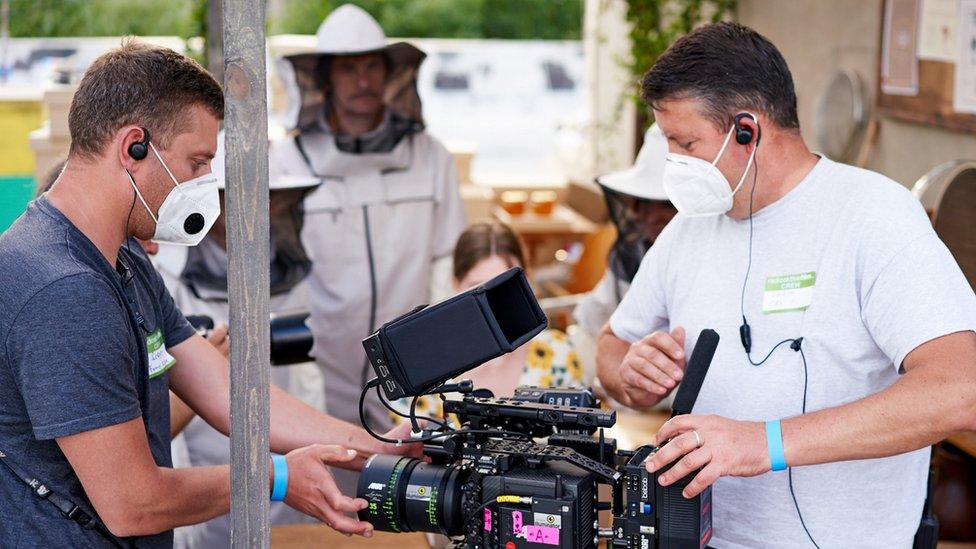
Many film sets had to temporarily close down this year
The Mercedes-Benz advert was made by Kiev-based Radioaktive Film, whose other high-profile clients include Samsung, Coca-Cola and Apple.
"Normally we have a group of about 35 to 45 people fly out for a shoot," says founding partner Darko Skulsky.
"Then suddenly on 16 March it was like, that's it, no more flights, everything's shut down. We had three jobs on the ground that had to stop because people started to panic."
Since then Radioaktive has increasingly been using a software system called QTake, which allows a director to be anywhere with an internet connection, and see a high definition, real-time view from inside the camera lens.

Darko Skulsy's firm helps adverts be shot remotely around the world
QTake was created in 2009 by Vlado Struhar, a Slovakian film director and programmer, as an alternative to having to huddle around a single monitor on a film set to view video playbacks. Initially all the users had to be on the same wi-fi. It was in 2016 that he updated the system to allow it to work completely remotely - from anywhere with an internet connection.
"We've been working on this for the past four years, so I'm proud to say we're not a newborn child of the pandemic," says Mr Struhar.
"Before [the pandemic], people did remote production only occasionally, when someone was sick, or couldn't travel. [Otherwise] all the important people had to be on set. But now they have realised, like many other industries, that it's possible to work remotely."
Another film company now utilising remote filming is London-based RSVP. It recently helped to make the 2020 Christmas advert for supermarket Aldi.
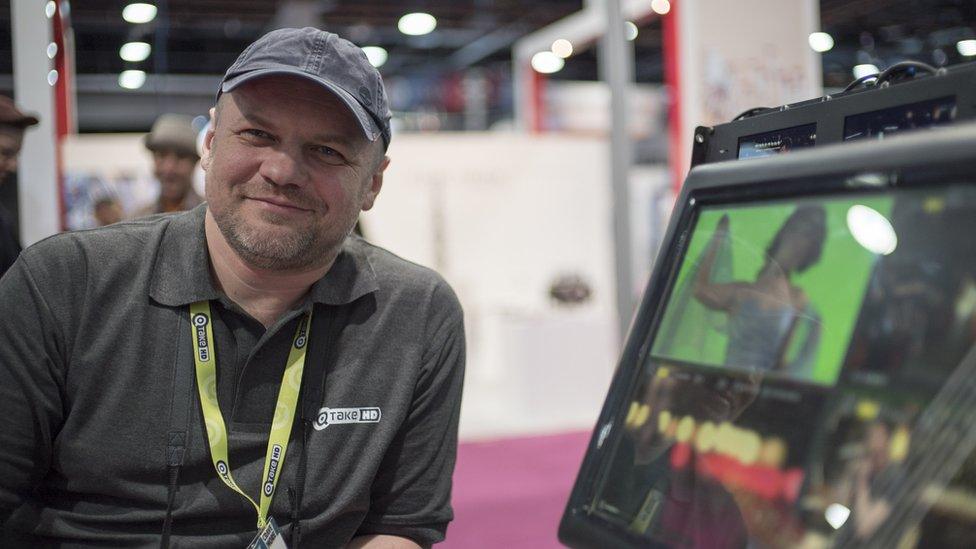
Vlado Struhar released the first iteration of his software in 2009
While the advert was made at a London studio, the two directors remained in New York thanks to software called Teradek, which works in a similar way to QTake. Meanwhile, representatives from Aldi were able to watch via Zoom.
"We spent lockdown jumping on this technology very quickly," says RSVP founding partner Andrew Spindle. "At first production companies were really nervous about how this whole thing was going to work out, so it kind of took a few people to first do a job, see that it could work, and then everyone else followed."
Mr Spindle thinks that such remote filming is now here to stay.
"[Previously] when clients came over from New York, or Japan, or wherever, you'd have to take them out to dinner, put them up in hotels. All that cost is now eliminated.
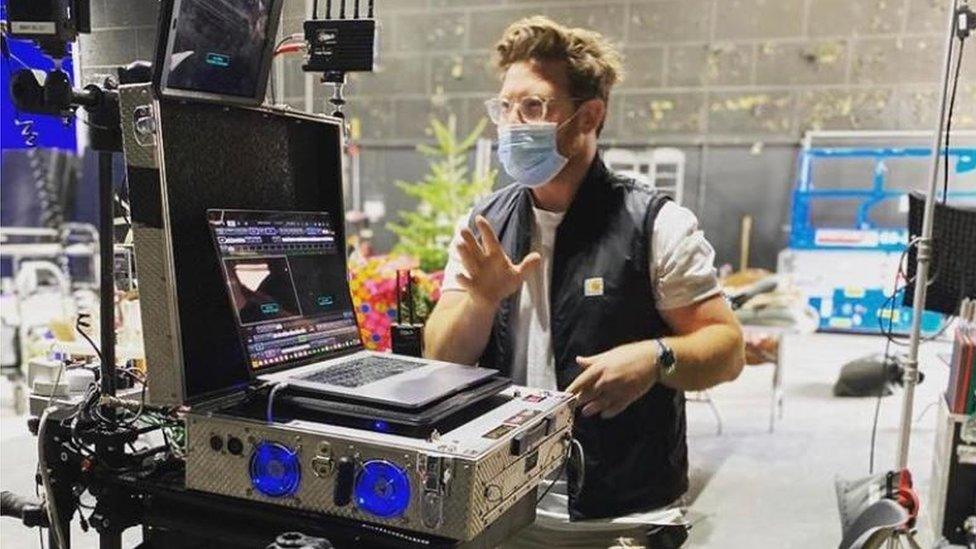
Andrew Spindle says that remote filming was initially viewed with some industry-wide nervousness
"The fact that these productions are functioning well now, with people not being present, just shows that they don't necessarily have to be there."
And it is not just TV ad-makers who have taken up remote working. Even major films, such as the next Jurassic Park and Batman movies, have used similar methods while filming this year, according to Mr Struhar.


New Tech Economy is a series exploring how technological innovation is set to shape the new emerging economic landscape.

However, some filmmakers say that remote filming would not work for them.
"For commercials and big budget, effects-driven studio movies it makes sense," says British director Jane Pollard, who makes films and music videos with her partner Iain Forsyth.
"But directing for me is about working with people - creating a momentum, finding chemistry, and making something remarkable happen between a group of people, in front of and behind the camera.
"Independent filmmaking is tight on time, short on money and big on ideas - it is more like signing up to a cult. For that, you absolutely have to be in the room."
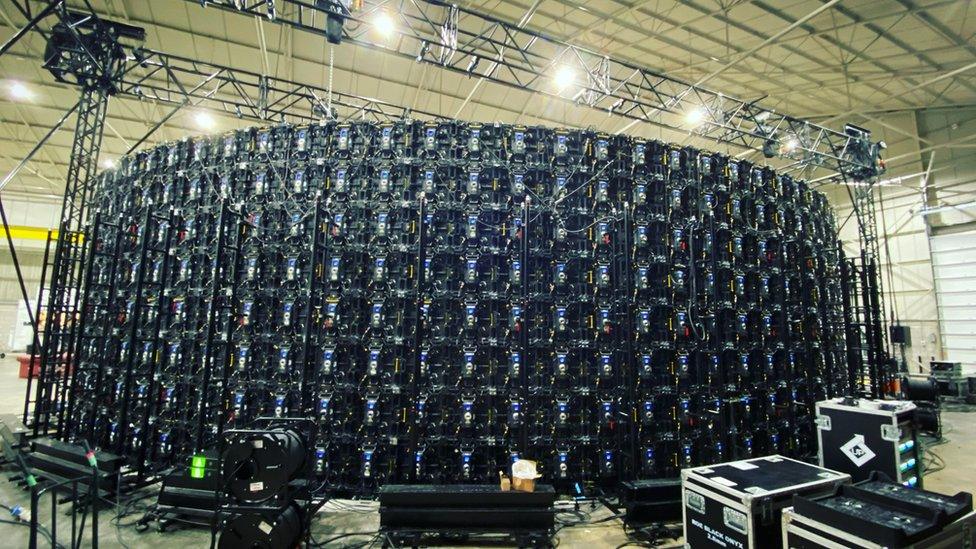
"Virtual production" sees actors filmed in front of virtual scenery displayed on curved LED screens
Another area of technology that has been given a boost by the pandemic is called "virtual production", where actors are filmed in front of a virtual backdrop, such as a forest or desert.
Previously the actors would have been shot in front of a green screen, with the computer-generated backdrop then added in post-production. But now software spun out from the gaming sector, such as Unity and Unreal, combined with the use of giant, curved LED video walls, means that the artificial background can be there while filming takes place.
With fewer staff on set, it can speed up productions, and actors can better react to their surroundings because they can see them, rather than having to imagine that they are there. It also means not having to travel to remote and often difficult locations.
"This was already coming down the pipeline before Covid," says Brian Mitchell, head of the UK's Rebellion Film Studios, which is increasingly using the technology.
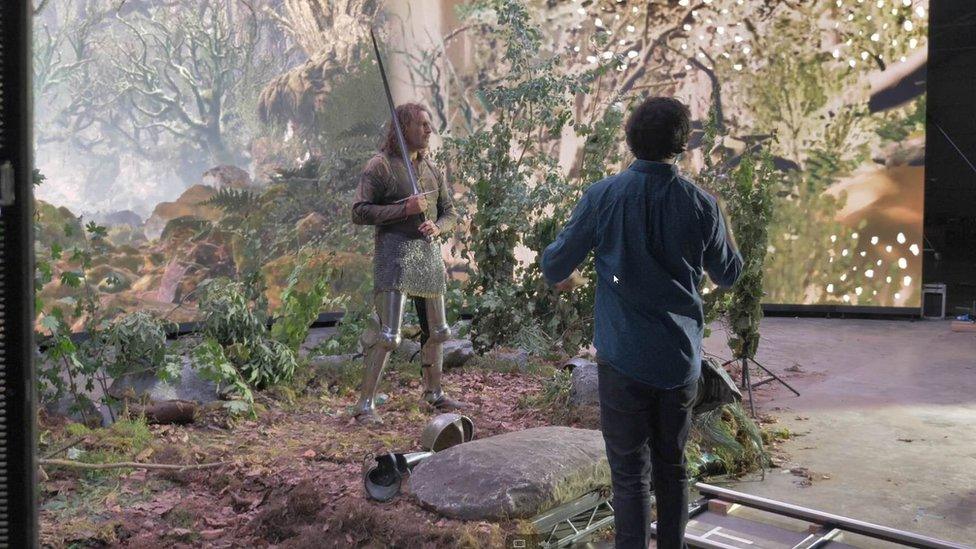
Virtual production filming allows an actor to see his or her surroundings, and not just a green screen
"But now we've reached a point in time where the technology is fast enough to see the end result being made right in front of our eyes. What might have been a green screen before is now a fully lit environment where the actors can see what's flying towards them, react to it, and interact with it."
Mr Mitchell adds that Rebellion is using off-the-shelf software to do most of this, which is well within the budget of independent filmmakers. "That's what's most exciting for me, and what's going to make the technology stay with us for the long term."